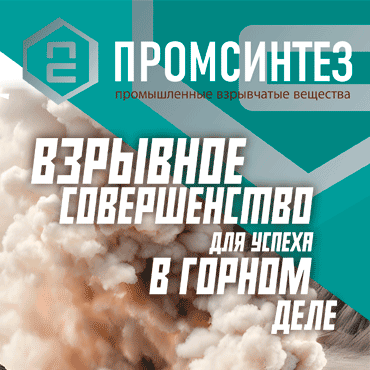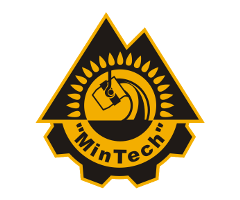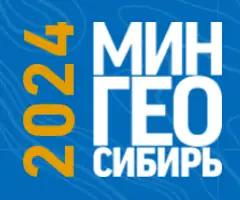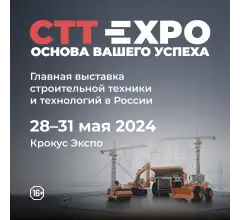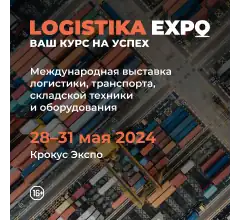Innovations in mentoring as part of the strategy to improve the quality of talent pool for the Russian mineral and raw material sector
 L.S. Pastuhova1, A.N. Lepyavskij2, M.A. Perepelkin2, E.N. Fomin3
L.S. Pastuhova1, A.N. Lepyavskij2, M.A. Perepelkin2, E.N. Fomin3
1 Russian State University for the Humanities, Moscow, Russian Federation
2 North-East State University, Magadan, Russian Federation
3 Technoport Autonomous Non-Profit Organization, Moscow, Russian Federation
Russian Mining Industry №6 / 2021 р. 133-138
Abstract: In contemporary Russian practices, mentoring is a multifaceted innovative 'human resource technology' aimed at developing professional skills and corporate competencies, as well as systematic and targeted participation in professional development of employees who have insufficient work experience or have difficulties in mastering new technologies and work techniques. Today, the institution of mentoring is an open industrial, educational and social space where the mentor transfers not only readymade ways to solve production problems, but also teaches how to use available intellectual and material resources. Although the mentoring process in its traditional sense does not require large financial investments, most business entities, industrial enterprises and companies are more actively using training, coaching techniques and various forms of internships, which are valuable forms of professional development of employees, but, as our research has shown, they do not have the potential that the targeted on-the-job mentoring possesses. With all the variety of forms and programmes of mentoring activities, there is a clear lack of innovative ideas aimed at improving its efficiency, which fully applies to the mentoring of students who take their work placements during vocational education, which is the subject of the research presented in this article. The literature and research studies do not fully analyse the potential of the third mission of universities regarding the issue of targeted mentoring aimed at more proactive and advanced applied training of graduates, capable of responding to "the great challenges". The article highlights the mentoring models used in foreign companies, which are similar to the types of mentoring technologies successfully implemented by Russian enterprises.
Keywords: T: mineral resource base, talent pool, mentoring institution, mentoring, proactive training, third mission of the university
For citation: Пастухова Л.С., Лепявский А.Н., Перепелкин М.А., Фомин Е.Н. Innovations in mentoring as part of the strategy to improve the quality of talent pool for the Russian mineral and raw material sector. Gornaya promyshlennost = Russian Mining Industry. 2021;(6):133–138. http://doi.org/10.30686/1609-9192-2021-6-133-138.
Article info
Received: 26.11.2021
Revised: 22.12.2021
Accepted: 23.12.2021
Information about the authors
Larisa S. Pastukhova – Dr. Sci. (Edu.), Professor of the Russian Academy of Education, Corresponding Member of the Russian Academy of Education, Vice Rector, Russian State University for the Humanities, Moscow, Russian Federation, e-mail: This email address is being protected from spambots. You need JavaScript enabled to view it.
Alexander N. Lepyavsky – Vice Rector, North-East State University, Magadan, Russian Federation, e-mail: This email address is being protected from spambots. You need JavaScript enabled to view it.
Mikhail A. Perepelkin – Cand. Sci. (Eng.), Associate Professor, Mining Department, North-East State University, Magadan, Russian Federation, e-mail: This email address is being protected from spambots. You need JavaScript enabled to view it.
Evgeny N. Fomin – Cand. Sci. (Edu.), Director General, Technoport Autonomous Non-Profit Organization, Moscow, Russian Federation, e-mail: This email address is being protected from spambots. You need JavaScript enabled to view it.
References
1. Bell D. The forthcoming post-industrial society: experience of social forecasting. 2nd ed. Moscow: Academia; 2004. 783 p. (In Russ.)
2. Kozlovsky A.A. Specific features in training of mining engineers and workers during the transition to a new technological paradigm. In: Kalmykov V.N., Rylnikova M.V. (ed.) A combined mining system: transition to a new technological paradigm: Materials of the International Scientific and Engineering Conference, Magnitogorsk, May 27–31, 2019. Magnitogorsk: Magnitogorsk State Technical University; 2019, pp. 40–42. (In Russ.)
3. Fomin E.N. Pedagogical potential of mentorship in context of modern requirements by the training of young professional. Obrazovanie. Nauka. Nauchnye kadry. 2012;(3):254–256. (In Russ.)
4. Esaulova I.A. New mentoring models in the foreign companies practices of personnel learning and development. Business Strategies. 2017;(6):08–13. (In Russ.) https://doi.org/10.17747/2311-7184-2017-6-08-13
5. Blinov V.I., Esenina E.J., Sergeev I.S. Mentoring in education: you need a well sharpened tool. Professionalnoe obrazovanie i rynok truda. 2019;(3):4–18. (In Russ.) http://doi.org/10.24411/2307-4264-2019-10301
6. Kudryashova E.V., Sorokin S.E. Social responsibility in the context of the third mission of universities. Vestnik of Northern (Arctic) Federal University. Series: Humanitarian and Social Sciences. 2018;(5):142–149. (In Russ.) http://doi.org/10.17238/issn2227-6564.2018.5.142



